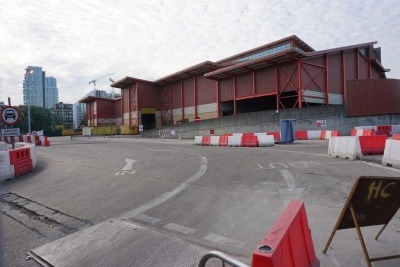Western Riverside Waste Authority retains new booking system
Western Riverside Waste Authority (WRWA) has signed a multi-year contract with bookinglab which will see the retention of the booking system that they have been trialling over the past six months.

Results of the trial
Members of the WRWA voted to continue using the booking system on 29 September after what the body considered a successful trial run. This follows a survey of service users which found that, out of the 5,762 surveyed, 97 per cent stated that they did not need to queue before entering the site; 98 per cent stated that making or amending a booking was ‘easy’; and 61 per cent stated that they wanted the new system to be retained.
WRWA also asserts that the amount of waste disposed of at the HWRC reduced by 7 per cent (760 tonnes) over the space of the trial, resulting in an estimated annual saving of £200,000. In 2019 alone, prior to the introduction of the system, approximately 27,000 non-residents were recorded to have disposed of waste at the Smugglers Way HWRC, costing WRWA an additional £133,000 in clear-up costs.
The waste authority claims that the system has seen a reduction in site misuse due to the following two reasons: the infrastructure sets unique booking rules in order to prevent non-residents from entering the site; the infrastructure integrates booking technology with on-site APRN cameras. The former has meant that residents are unable to access the site without a booking, which requires potential visitors to fill out a series of required fields, including address, number plate, and contact details. Those without proof of booking, as well as those from outside the catchment area, are denied entry. The latter has seen APRN technology being used to identify license plates, matching them with those listed on each booking – vehicles which do not correspond with an online reservation are also rejected.
Off-site queuing has been further reduced, WRWA states, through data collection from the new booking system. According to the waste authority, through analysing prior trends in usage, Smugglers Way HWRC has been able to optimise its appointment structures on a daily and hourly basis, rather than implementing a one-size-fits-all approach. WRWA claims that this has helped to ‘increase site efficiency and improve resource allocation’.
Beyond these benefits, WRWA asserts that the new booking system has allowed the site to offer same-day appointments; provide a better understanding of the types of materials residents are disposing of; provide a better understanding of the average duration of a visitor stay; and develop improved and less costly means through which to communicate with local residents.
The Chairman of the Riverside West Residents Association, commented: "From the residents I've spoken to, the trial has been an overwhelming success, with far less noise from cars on the road, less pollution, fewer queues blocking our entry/exit to the car park and much more perceived control."
Chad Duggan, CEO of bookinglab, stated: "This solution is a great example of how booking technology can work alongside operational systems to deliver enormous value. In this case, we extended our capabilities to automate the data exchange between the booking system and on-site ANPR cameras. Importantly, this has provided site staff with real-time information — helping them prevent service misuse by validating whether a visitor resides within the boroughs served."
Mark Broxup, General Manager at WRWA, said: "From the trial, we wanted to achieve two things. Our first objective was to control site usage and redistribute visits. Our second was to reduce the material delivered to the centre by stopping non-resident site usage. In the 6-months the system was in place, we achieved all of this. Based on these results and various visitor satisfaction surveys, our members voted to keep the system in place long-term."







